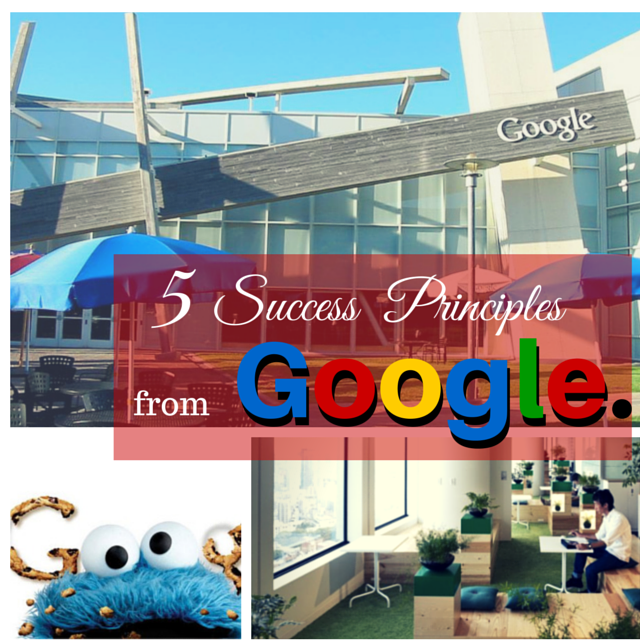A true underdog story, Google’s humble beginning started from a garage by two Stanford students in their early 20’s.. Their chief and admirable goal; to build something that would one day sell for $1M.

The founders never received their $1M cheque, which has allowed this behemoth of a company to continue on; currently netting $113,822 of revenue every 60 seconds, and converts $23,238 of that into profit, as quoted by Time Magazine.
Clearly any small business owner can learn a thing or two from this company and it’s founding fathers. Let’s explore a few principles that have allowed this little garage-based search engine to take over the tech world and how those principles can benefit our small businesses…
1) Focus on the User, not the Money
Google’s chief social evangelist, Gopi Kallayil, stated “Create a great user experience and the revenue will take care of itself.” An example of this being the launch of Google’s instant search.
By predicting what the user will type into the search bar, they estimate that after one year of collective use, Google saves mankind 5,000 years! Despite the fact that they knew their ads would be seen for less time, resulting in less profit, the benefit to user experience was enough to support the feature.
What innovations can you make in your systems to allow for a better user experience in your business?
2) Implement and Iterate
The best way to get results is to take an idea to market right away. They launched Google Chrome as soon as they had a working model, and updated the software every six weeks. The founder of LinkedIn, Reid Hoffman, says “if you are not embarrassed by the first version of your product, you’ve launched too late.”
Get your business idea or your marketing campaign started as premature as possible, then use the feedback to improve or redirect. Have you been playing with an idea in your company and feel like you need to have “the stars align” to let others experience it? Now just might be a good time to start.
3) Be Open & Transparent
They knew they couldn’t hire all of the world’s best programmers for the Android platform, so they left the program open to any developers to improve the structural processes. Whereas their largest competitor, iOS (Apple devices) are about as unlocked as the President’s bathroom door.
Don’t try to be and do everything. Open up to your weaknesses and allow others to fill that void. Partner up where possible, delegate where possible, and always be honest with your clientele.
4) Don’t Go At It Alone
As the African Proverb goes, “If you want to go fast, go alone. If you want to go far, go together.”
Google’s algorithm for ranking webpages was Larry Page’s idea. Without the programming skills of his colleague, Sergey Brin, the search engine would never have been more than a Stanford thesis.
Solopreneurship can be tough, lonely, and exhausting. Consider getting a business partner that excels in the areas of business that you don’t, or hire a coach!
5) Life Is Too Short to Take Seriously
Google is a global example of play. They’re online app store is called “Google Play” and their Googleplex headquarters is the desired employment for millions of people. For a closer look inside the wonderment of the Google headquarters, check out this video.
They also place high importance on bottom up improvement, and therefore give lots of creative freedom to their employees. Google offers 20% of employee work hours toward their own creative projects to further the entrepreneurial spirit inside, and perhaps change the world. This is how Gmail was created and now dominates the personal e-mail industry.
How much creativity are you putting into the experiences your patients have, the experience your team has at work, and local PR opportunities that could grant you local iconic status? Dr. Tom has spoken of creating magic moments for staff from their favourite flowers randomly showing up on their desk to spontaneous dinner outings for their families paid by the company. Keeping the staff and members engaged and “coming back for more” is worth more than just a paycheque today.
How many of these principles does your business currently employ?
It’s easy to see why this company has earned over $70k in profits since the time you started reading this article.
Based on these principles, what’s one thing you have been thinking about doing that you will commit to “bringing to society”? Let us know in the comments below!

